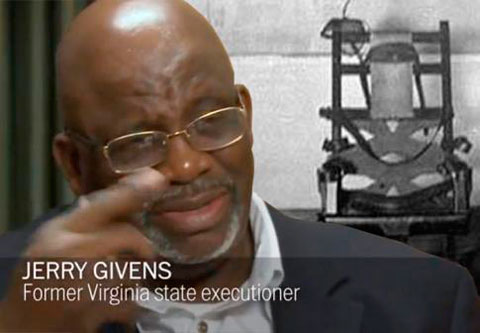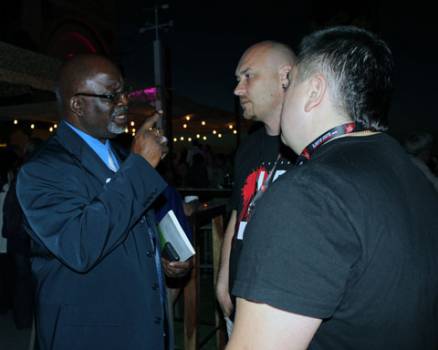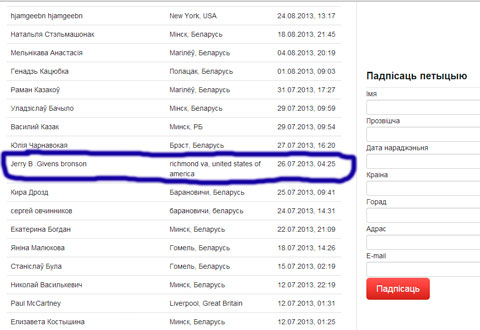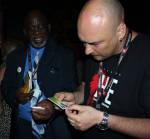Former US executioner signs the petition against the death penalty in Belarus
-

- Photo by courrierinternational.com
Referring to his
experience, Jerry Givens, now an activist of
the association "Virginians
for Alternatives to the Death Penalty"
and author of the book "Another
Day is Not Promised”
believes that only a complete refusal of the
State from the death penalty can prevent a
miscarriage of justice.
Representatives
of the campaign "Human Rights Defenders against the Death
Penalty in Belarus"
got acquainted with Jerry Givens at
the 5th World Congress against the Death Penalty, which was held this
year in Madrid. Their interest
to the person of the
American abolitionist was called by
the frequently quoted speech in which he
explained why he is a
strong opponent of the
capital punishment.
Jerry
Givens , who lives in Richmond (Virginia), worked
in penitentiary institutions for more than 25 years. He headed prison
executioner crews for 17 years, during which 62 executions were
conducted: 37 were executed by electric chair,
25 – by lethal injection. As said Givens, his epiphany came in
1993, when one of those sentenced to death was acquitted as
a result of DNA tests. (By the way , since the
beginning of 1990, thanks to the expertise of DNA in the United
States, sentences to 302 people were revised,
18 of whom were to have been punished with death). Givens
then asked himself the
question: " If I punish an
innocent person, then
how am I different from
those on the death
row?". In the future, his personal
experience also made him think about the issue of miscarriage of
justice: in 1999 he was imprisoned on charges
of crimes which, he argues, he did
not commit. And then he started thinking that
among the 62 people executed by him there could be also some victims
of judicial error. Since then, Jerry Givens has been trying to tell
the public that only a complete abolition of the death penalty
can guarantee that a prisoner would not be
deprived on life by mistake. 
Talking
about the meeting Jerry
Givens, coordinator of the campaign "Human Rights Defenders
against the Death
Penalty in Belarus "
Andrei Paluda noted
that this is not the first case when direct
participants of executions publicly speak
against the death penalty. Previously, the campaign
of the Belarusian human rights activists was
supported by Aleh Alkayeu, the author of the
controversial book "Firing Squad", who
used to head the executioner
crew at Minsk remand prison No. 1 in 1996-2001. According to Mr.
Alkayeu, during that period 134 prisoners were executed.
"During
our conversation with Aleh Alkayeu he voiced
the arguments against the death penalty which matched those of Jerry
Givens, that an innocent person can be
executed”, says Andrei
Paluda. “However,
according to him the most important argument is that the death
penalty is not a measure to prevent serious
crimes. He has also repeatedly emphasized
that, whatever “trivial” it may sound, Belarus is the last
country in Europe to retain the death penalty
..."
The human
rights defender
emphasizes the fact that these arguments are drawn
by the people who directly
participated in the execution of the death
penalty and know all "ins
and outs" of this process.
“During
our conversation, Aleh Alkayeu said that in each case of the
execution of the death penalty he was sure in the guilt of these
people. However, there was one case when he understood that the man
who was to be shot took the blame out of a
sense of solidarity with other accomplices in the crime. The
19 -year-old boy was shot dead by
self-incrimination ...," says Andrei
Paluda.
Accling
everybody to sign the Petition
against the Death Penalty in Belarus, the campaign coordinator
proposes to the arguments of the former executioners. It is important
that these very people tell everyone that this kind of punishment
should not be used.





